- Home
- Hanif Kureishi
What Happened?
What Happened? Read online
WHAT HAPPENED?
Stories and Essays
HANIF KUREISHI
To Isabella
Contents
Title Page
Dedication
Introduction
Birdy Num-Num
If Their Lips Weren’t Sealed by Fear
Love Is Always an Innovation
Excessive, Explosive Enjoyment
London: Open City
Where Is Everybody?
Two Keiths and the Wrong Piano
It Feels Like a Crime: The Devil Inside
Read My Mind
The Muse Gave Me a Kiss
She Said He Said
We Are the Pollutants
It Was So Much Fun
Starman Jones
His Father’s Watch
The Widow
Travelling to Find Out
Why Should We Do What God Says?
Fanatics, Fundamentalists and Fascists
Nowhere
My Beautiful Box Set Binge
An Ice Cream with Isabella
The Billionaire Comes to Supper
Acknowledgements
About the Author
Also by the Author
Copyright
Introduction
Writing has been my life: I decided as a teenager that story-telling was what I wanted to do, and I was determined that it would be how I earned my living, however paltry that might be. I did attempt other things – offices, theatres, bookshops – but I am naturally ungregarious, bad at taking orders and lazy. I try never to leave the house before 9 a.m., and, if possible, 9 p.m. I wanted to choose my boredom. Keith Richards wasn’t working in an office; Hendrix wasn’t filing.
There’s a lot to be said for inactivity. Being alone in a room for a long time, with what Conrad calls ‘liberty of imagination’ – as well as music, coffee and pens and good paper – suits me. You can pace your study, talk to yourself and nap when you like, and how many jobs can you say that about? I enjoy writing as much now as when I began, if not more. I usually start as soon as I wake up, like most of the writers I know. Some of it comes easily; most of it slowly, and I go over it until I think I’m going blind. Naturally, there are periods when you can’t write a thing and become convinced it’s all over. There are other times when you’re full of it. This seems to be beyond one’s control.
Being lazy doesn’t mean I’m not nosy and don’t wallow in gossip, which is always a useful source of stories. One of my desks overlooks the street, and this being a great city of events, there’s much to see, particularly after I bought the binoculars.
While London has been an exciting place to live, Britain was a relatively quiet and cosy place for most of my life. Yet there have been revolutions in finance, music and culture, in the way race and homosexuality are seen, and particularly in terms of the place of women, who were, like my mother, when I was a child at the end of the 1950s, mostly housewives, and would describe themselves as such. When women began to bust out of their roles, it altered everything for men. We had to change the way we saw ourselves; our relationships with women became more difficult, expansive and much improved. To write about human beings is to think about gender, race and class. Everyone is standing somewhere.
Many of us semi-delinquent kids in the suburbs believed we didn’t fit in. To feel that one will never quite belong to any creed, religion, class or country is an opportunity to see things from the side or, as E. M. Forster puts it, from ‘an oblique angle’. I have often used autobiography – the experience of being mixed-race – as the starting point of a story. Beginning with the enigma of myself, of how others saw me, and with something I felt and wanted to express, I moved out into the social and political world: the end of empire, the early years of my family’s life in Britain, through multiculturalism and the re-emergence of fascism in Europe, with Islam as the organising principle.
From an early age I was fascinated by writers’ daily activities and biographies, by how much they wrote and how they made a living; and, often, how they didn’t.
There are now shelves of books about what is called ‘creative’ writing, as if there’s any other sort, and I enjoy reading those too. Apart from the fact that the plot is usually the least interesting part of any story, few of these guides mention the fact that frustration is the medium of any kind of achievement. In writing – as, I guess, in every other art form – frustration, the sense of being eternally stuck, of living in an endless interval, is essential and what writers live with all day. Frustration is an engine, a stimulus, an opportunity and a postponement, and you can use it and work with it, making doubt and anguish pleasurable. The trick is not to exit frustration prematurely: it is a generative, if not agitating, space, where you have to wait and imagine. The satisfaction of making a breakthrough, of actually finishing something, means little compared to the pleasure of striving. Finishing only means you have to begin again.
I’ve been fortunate to have spent time with good writing teachers. Some editors, and most of the directors who have produced my work, have taught me about cutting and organisation, the craft of writing: order, rhythm and pace. And the use of deferral: suspense – the art of withholding.
A good place to study and learn this is in the theatre, where, literally, you can hear the audience responding to the language. Most good writers know how they want their work to look and sound – particularly if spoken by actors – but it’s never stupid to hear from others. This can make the process more dialectical and collaborative than it can seem at first. And the collaborations I’ve been part of, in theatre, cinema, dance and with musicians, have pushed me to do work I could never have contemplated alone.
Since I was fortunate enough to work at the Royal Court Theatre in my late teens, I’ve been a teacher, and I’ve always enjoyed talking about writing and stories, and how writers might trap the reader, seduce and play games with them, and generally mess them around while giving them the time of their lives. This is responsible and socially useful work. After all, most of humanity, almost every day, is attending to some form of story or another, created by a writer.
I’ve never had a beef with students and their desire to say something about themselves and the world; I am usually curious to read their work and receive what they have to say. Witnessing a spark of originality, a unique way of expressing something, particularly if you yourself have encouraged it, is magical. As Chekhov says of the writer’s work, ‘My business is merely to be talented.’ The gift of talent is, fortunately, mysterious and unevenly distributed. It can be encouraged and developed but not inherited or implanted.
I have had some disagreements with the institutions, which appear to be mostly concerned with gathering money, rather than with the improvement of their charges. However, the decline of the novel as the central form for the exploration of human beings, and the development of new media – the long-form television show, podcasts, indie movies – have created more opportunities for writers of all ages. Several writer friends, in their late seventies, who work with the energy of people twenty years younger, have not found themselves redundant, but are as in demand and busy with commissions and projects as they’ve ever been. I’ve never met a retired writer. Getting older means you have more to say and are less inhibited. Once the kids have grown up, you have more time, and what else would you do all day?
A significant alteration in the writer’s ecosystem has been the rise in literary festivals and events. It was rare when I was younger, at least in Britain, for writers to give readings, but it was a hugely exciting thrill to see James Baldwin, Gore Vidal or Norman Mailer being ornery and political on Sunday-night television, showing those of us who were isolated in the suburbs that writers and thinkers are not an esoteric bauble,
but essential to the intellectual life of the country. Now festivals are ubiquitous, some drawing vast crowds, which is a good thing for literature, if a little nerve-wracking for scribblers who spend a lot of their lives in the dark, often becoming writers because they find it hard talking to other people, let alone addressing a multitude.
The essay is an enjoyable, intimate and flexible form which is relatively quick to write and should be easy to read. A few of the pieces collected here were written for specific occasions, like the opportunity to walk around my west London neighbourhood and describe what I saw. Others because I wanted to say something about pleasures: drugs, literature, pop. If you don’t know anything until afterwards, ‘What happened?’ is the writer’s fundamental question, where one starts to seek the words which might surround the baffling and exciting mess of existence. We are what has disturbed us, and we return repeatedly to it, with some hope of mastery at last, saying the unsayable, turning accidents into stories. Although coherence is an illusion, it is the striving and failure which makes art. Almost all of my writing in various shapes has occurred because I had an idea or set of characters who wouldn’t leave me alone, and I absolutely needed to find the words to say it, whatever that it might be. This is how I’ve mostly proceeded, following my curiosity. There is seeing first, which is indistinct; and then saying, which must be clearer.
There is, then, an odd thing about writing: however long you’ve been doing it – and most of us find it necessary to wonder daily why we bother at all – you still have to start afresh each time, as if you’ve never done it before, which provides a new opportunity for frustration and hope.
Birdy Num-Num
Here’s an odd thing. As a mixed-race kid growing up in the south London suburbs in the 1960s, I liked any film starring Peter Sellers, particularly I’m All Right Jack, Dr Strangelove and The Pink Panther. But my two favourites were The Millionairess and The Party, in which Peter Sellers played, respectively, an Indian doctor and a failing Indian actor.
In both films Sellers, in brownface, performs a comic Indian accent, along with a good deal of Indian head-waggling, exotic hand-gesturing and babyish nonsense talk. He likes to mutter, for instance, ‘Birdy num-num,’ a phrase I still enjoy replicating while putting on my shoes. And I’m even fond of singing ‘Goodness, Gracious Me’, the promotional song from The Millionairess, produced by the peerless George Martin. So, at the end of the 1960s, my sister, mother and I came to adore Sellers’s Indian character, repeating his lines aloud as we went about our business in the house, because we liked to think he resembled Dad.
My father, an Indian Muslim who had come to Britain at the end of the 1940s to study law, was, in his accent and choice of words, upper-middle-class Indian. As a child and young man he’d spoken mostly English, since his father – who liked the British but hated colonialism – was a colonel and doctor in the British Army. However, we didn’t think of Dad’s accent as Indian; for us it was a mangling of English. There was a standard, southern, London accent, and he didn’t have one. He was a mimic, but a bad one, as all colonial subjects would have to be. If the white Englishman was the benchmark of humanity, almost everyone else would necessarily be a failed approximation. Dad could never get it right. Indians were, therefore, inevitably comic. And because my father, as a father, was powerful and paternal, our teasing shrank him a little.
Dad was also sweet, funny and gentle, but not wildly dissimilar – in some moods – to the hapless characters Sellers plays. My sister and I had been born in Britain after all. We knew how things went and Dad didn’t. As I wrote in The Buddha of Suburbia, ‘He stumbled around the area as if he’d just got off the boat.’ If my father’s way of misunderstanding hadn’t been comic, it might have become moving or even upsetting.
When I got older, my younger self embarrassed me. I vowed not to look at those movies again. Foolishly, I’d allowed myself to be tricked into loving a grotesque construct, a racist reduction of my father and fellow countryman to a cretinous caricature, and I’d be advised to backtrack on my choices. Yet recently, re-watching the films, when I stopped weeping my views changed once more, and I want to think about what I liked in them.
My mother had married what was then called ‘a coloured man’ in London in the early 1950s, at a time when one fear in the West was of unauthorised boundary crossing, or miscegenation. It was with miscegenation that the terror of racial difference was placed. Men of colour could not and should not be desired by white women, nor should they breed with them. People of whatever colour could only go with others of similar colour; otherwise some idea of purity would be defiled. Racial separation thus ensured the world remained uniform and stable. That way the most important thing – white wealth, privilege and power – would be sustained. Nor was the crime of ‘crossing’ trivial. We should not forget that Hollywood’s Production Code banned miscegenation from the American cinema for thirty years.
As children of mixed-race background, though not particularly dark-skinned (I’d describe myself as ‘brownish’), we were subject to some curiosity. People were worried for us because, surely, being neither one thing nor the other, we’d never have an ethnic home. We mongrels would linger for ever in some kind of racial limbo. It would be a long time before we could enjoy being different.
It is with this in mind that we should look at The Millionairess, while not forgetting that Sidney Webb, a close friend of Bernard Shaw – the author of The Millionairess – and a supporter of eugenics, warned that England was threatened by ‘race deterioration’. I was surprised to read that Shaw himself wrote, ‘The only fundamental and possible socialism is the socialisation of the selective breeding of man.’
Despite this, we should consider how few mixed relationships were shown on screen. Anthony Asquith’s movie, made in 1958, was adapted by Wolf Mankowitz from Shaw’s 1936 play, in which the male lead is Egyptian. In Asquith’s version, a divine Sophia Loren – an aristocratic, rich Italian called Epifania Parerga – falls in love, while attempting suicide, with an Indian Muslim doctor who, at first, sees her as nothing but a nuisance.
I must have seen this on television, and I don’t recall many people of colour appearing in the movies I saw at the cinema with my father, except for Zulu and Lawrence of Arabia. This was also a time when black film-makers were virtually invisible. The Sellers character, Dr Ahmed el Kabir, is not only a Muslim man of colour and voluntarily poor, he is cultured, educated and dedicated to helping the indigent and racially marginalised. Most natives in most movies, of course, had always been shown as thieves, servants or whores, or as effeminate Asiatics. We were always considered dodgy. Roger Scruton writes in England: An Elegy, ‘The empire was acquired by roving adventurers and merchants, trading with natives whom they could not or would not trust …’
We were thrilled, then, that the movie would include no covert fantasy of coloured men raping white women, a trope which seemed to me to be almost compulsory since A Passage to India and The Raj Quartet. And The Millionairess does, in fact, have a nice Hollywood ending, with the mixed-race couple together, enjoying one another.
While The Millionairess looks creaky and silly in places, but is saved by the performances of the leading couple, The Party is a lovely film. Sellers, obviously a great comic actor, is at the peak of his mad inventiveness, and Blake Edwards is a brilliant director of physical comedy. Composed of a series of perfectly judged vignettes – a carousel of increasingly bizarre incidents – the movie becomes riotously anarchic as Sellers’s innocent Indian creates, inadvertently, total chaos at the house of film producer General Clutterbuck, to whose party he is mistakenly invited after blowing up his movie set.
At the beginning of the movie, Sellers’s character, Hrundi, is shown playing the sitar, reminding us that at this time – it is the year when Sgt Pepper was being played in every shop, party and house you visited – Indians were supposed to possess innate wisdom, beyond the new materialism of this dawning vulgar age in the West. When, soon after, Hrundi att
ends the smart Hollywood party, it isn’t difficult to identify with his apprehension. Don’t we all feel, when going to a party, that we are about to lose our shoe in a water feature and will spend the next hour on one leg?
Yet he is even more out of place than we would be, and unnerving in his strange, formal politeness. ‘Do you speak Hindustani?’ he asks strangers, who are baffled by his question. ‘Could you ever understand me?’ would be a translation. ‘Do you want to?’
The Party was released in 1968 and I’m surprised at my enthusiasm for it at the time, since this was also the year of Enoch Powell’s grand guignol ‘Rivers of Blood’ speech. If my father and other Asian incomers seemed wounded in Britain, vulnerable, liable to abuse, looked down on, patronised, tolerant of insults, racism made me want to be tougher than my father. My generation would rather resemble the Black Panthers than the Pink Panther. We knew we didn’t have to cringe and take it, for this was the era of Eldridge Cleaver, Stokely Carmichael and Angela Davis. These blacks were so sexy with their guns and open shirts and attitude, and I’d been mesmerised by the black-gloved salute of Tommie Smith and John Carlos at the 1968 Mexico Olympics.
There’s nothing macho about Hrundi. He’s a different sort of heterosexual leading man to those usually preferred in the American cinema. When, at the party, he meets one of his heroes – a tough but charming cowboy with an iron handshake and a movie reputation for shooting Red Indians – Hrundi is offensively absurd in his sycophancy.
Yet there is something to his softness. The other men in the film, those involved in the film industry, are shown to be somewhat brutal if not short with women, whom they patronise and infantilise. Hrundi is different. Perhaps women and people of colour occupy a similar position in the psyche of the overmen, which is why his friendship with a coy French girl [Claudine Longet] who sings like Juliet Greco, is so touching. The woman and the Indian, both subject to the description of the other, the brown man coming from ‘the dark continent’ and the woman as ‘the dark continent’, can recognise one another as supposedly inferior. Both are assumed to be inherently childish.

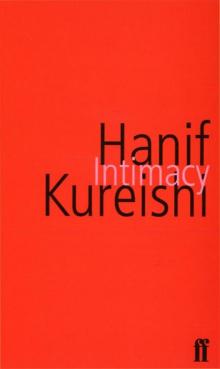 Intimacy
Intimacy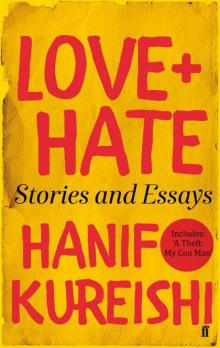 Love + Hate: Stories and Essays
Love + Hate: Stories and Essays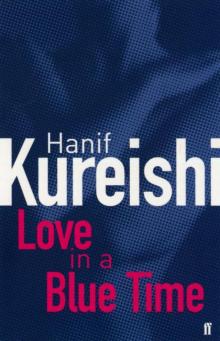 Love in a Blue Time
Love in a Blue Time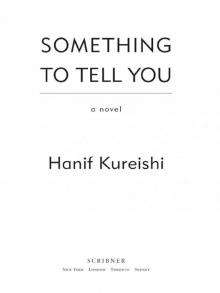 Something to Tell You
Something to Tell You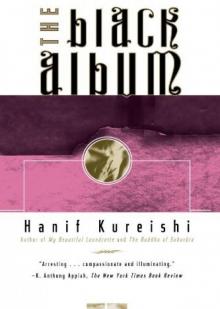 The Black Album
The Black Album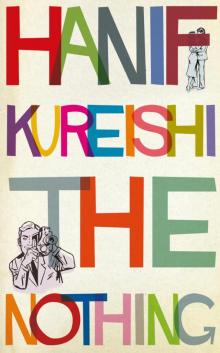 The Nothing
The Nothing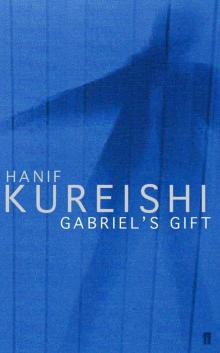 Gabriel's Gift
Gabriel's Gift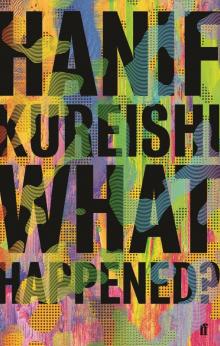 What Happened?
What Happened?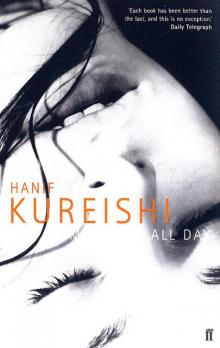 Midnight All Day
Midnight All Day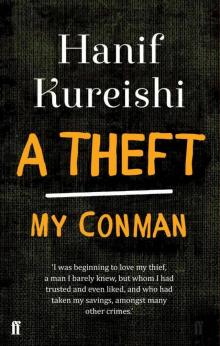 A Theft: My Con Man
A Theft: My Con Man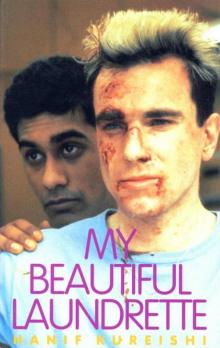 My Beautiful Launderette
My Beautiful Launderette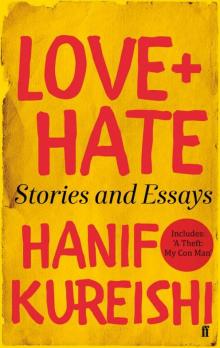 Love + Hate
Love + Hate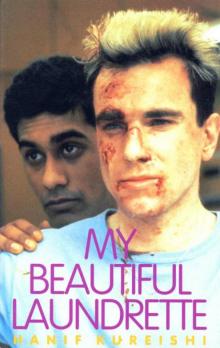 My Beautiful Laundrette
My Beautiful Laundrette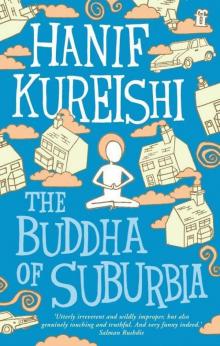 The Buddha of Suburbia
The Buddha of Suburbia